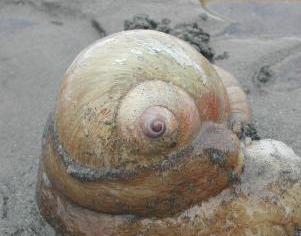But Dobbs gives only one example -- the Mormons "helping a pro-amnesty incumbent with a get out the vote campaign," where a church is accused of supporting a particular candidate. His argument is much broader: No religious organization, apparently, should participate in any activity within what he has deemed as a "political" sphere. He mentions that the IRS has dozens of investigations underway, and snarks that, "apparently nobody in the federal government is too concerned that the Catholic Church has repeatedly lobbied on behalf of millions of illegal aliens and their supporters for wholesale amnesty and open borders." And he says it's "time for all of us to examine closely, both in our communities and in our Congress, just what separation of church and state really means to us and to the nation."
Okay, I've examined it. How about this, Lou? Keep your politics off my immigration issues. Maybe the reason "nobody in the federal government is too concerned" here is because you're wrong.
This is my religion: "for I was hungry and you gave me food, I was thirsty and you gave me something to drink, I was a stranger and you welcomed me, I was naked and you gave me clothing, I was sick and you took care of me, I was in prison and you visited me…. Truly I tell you, just as you did it to one of the least of my people, you did it to me." Jesus Christ. Immigration isn't just a footnote to Christianity; it is one of its core themes and defining values. What kind of government would deny me my right to study this in a Bible group, announce it to my fellow parishioners, and minister to immigrant peoples? On what theory does my personal religious practice become a government "establishment" of religion to the extent that my own right to free exercise -- in fact to free speech, to free assembly, to free press -- can be abridged?
I'd say "we were here first" -- that immigration has been a religious issue far longer than it's been a political one -- but that buys into Dobbs' polarization of "Church" and "State" as two institutional spheres that should never influence each other. But "religion" isn't simply an institution. Religion is a paradigm; a set of values; a defining premise that guides the lives of individual men and women of faith. Whether these people meet in a church or synagogue, worship their God by name, or pray together or separately -- their faith is an innermost, private process of the human heart. Likewise, "politics" isn't a disembodied activity that occurs only in campaigning, in voting, in the activities of our legislature and judiciary. "Politics" are the very processes by which we argue, buy, discuss, read and spend according to what is most important to us. Political process and religion perspective are each part of all of us. How can one be ever kept wholly distinct from the other?
Yes, I hold the establishment clause as dearly as I hold my right to free exercise. But telling my parish to stay silent in the face of massive social oppression, as if we must shut up and stick to singing Kumbaya on Sundays, is unconscionable. If immigration is political, it's because of the way our government uses its economic and military power to control its borders and deny its privileges of citizenship to outsiders. This threatens the life and safety of the thousands of men, women and children who their lives for a chance to come join (and be exploited by) our society. This is a tragedy and an epidemic. And if my heart and soul tell me not to look away -- to help, to reform, to fight the tragedy -- does it matter that this particular heart is informed by a particular faith? It cannot.
Give me your tired, your poor
Your huddled masses yearning to breathe free
The wretched refuse of your teeming shore
Send these, the homeless tempest-tossed to me
I lift my lamp beside the golden door.
Inscription on the Statue of Liberty
